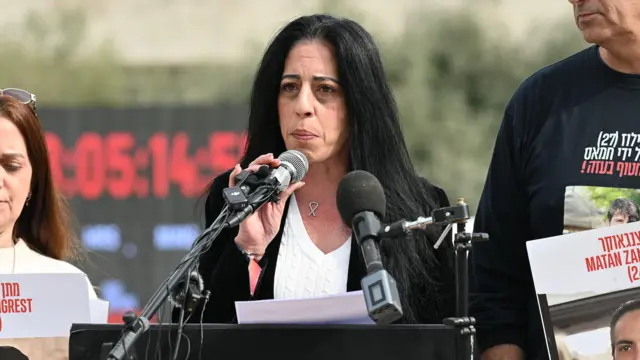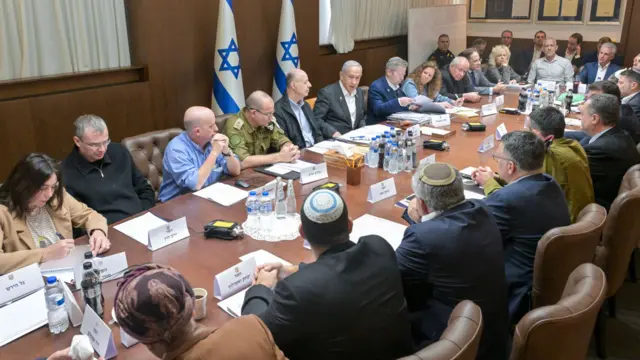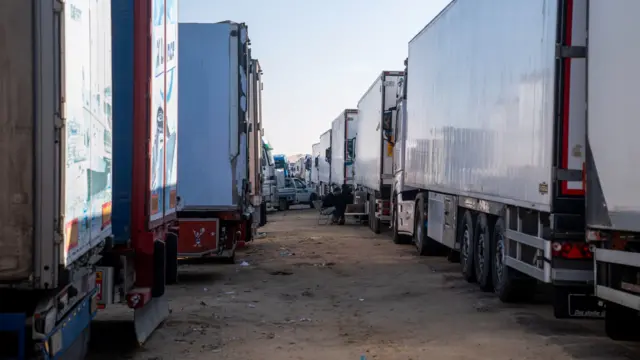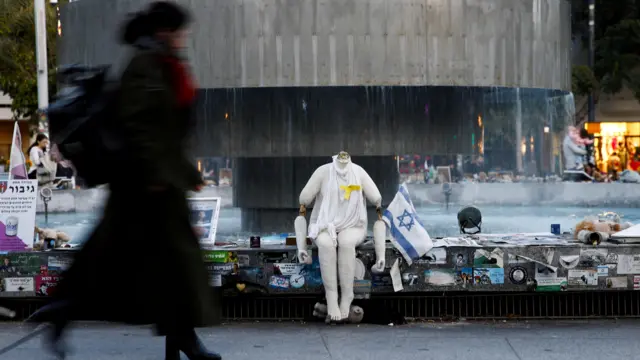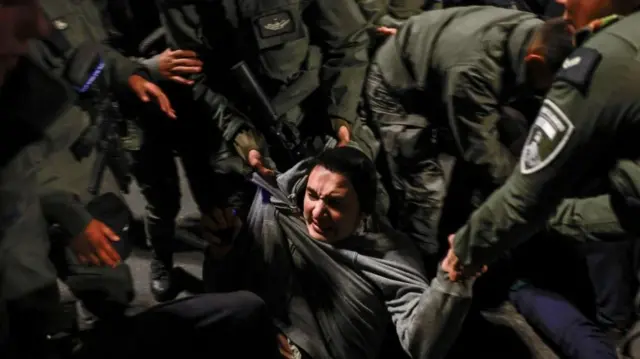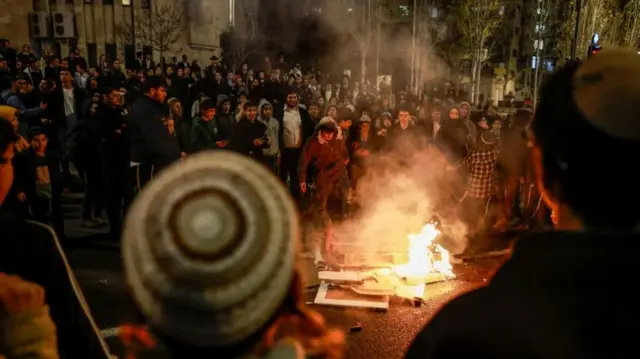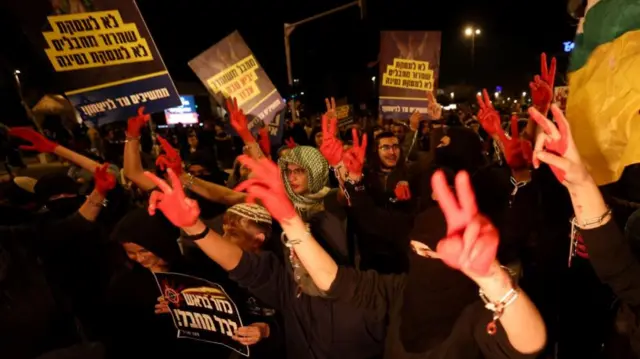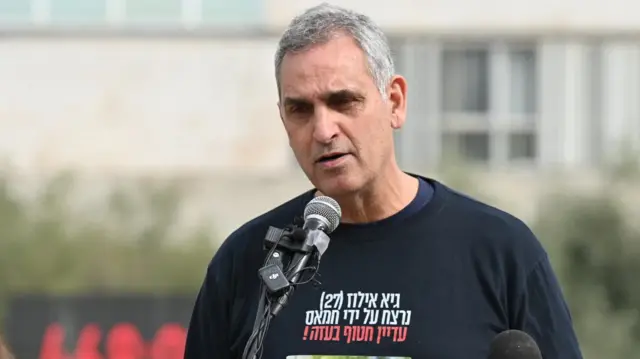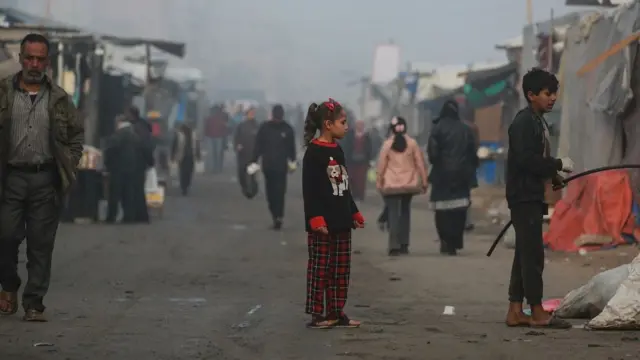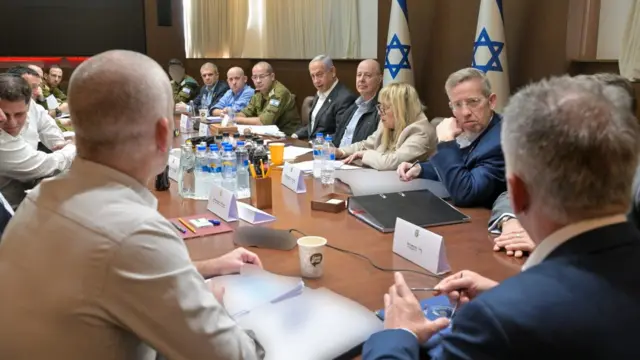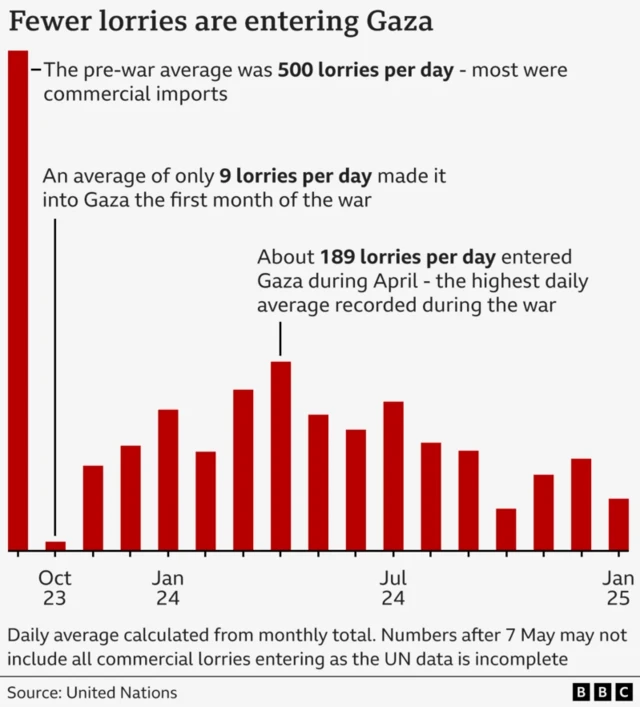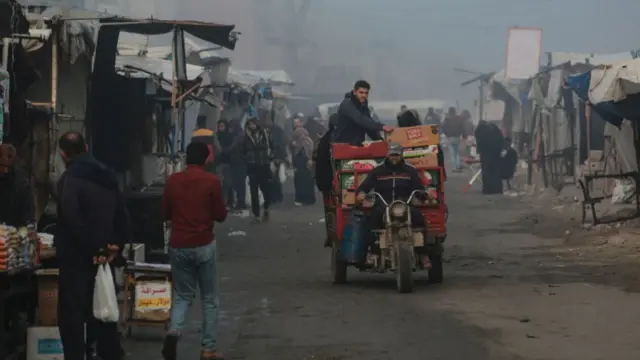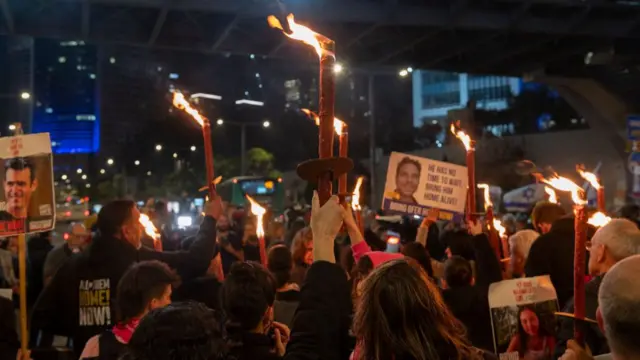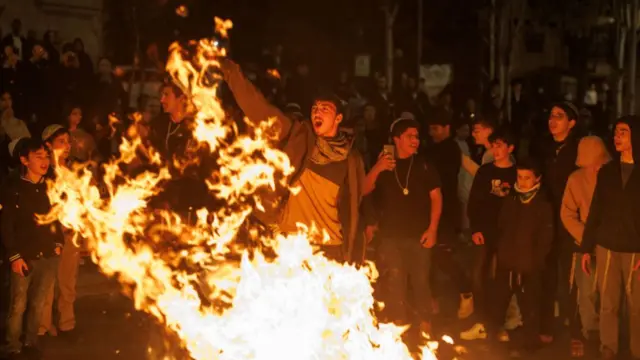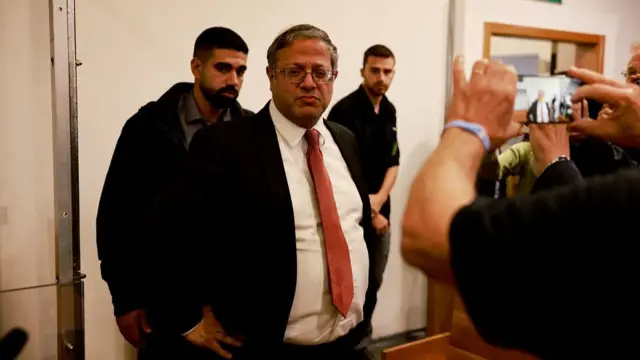Israel's president welcomes deal, but warns of 'great challenges' aheadpublished at 13:32 GMT 17 January
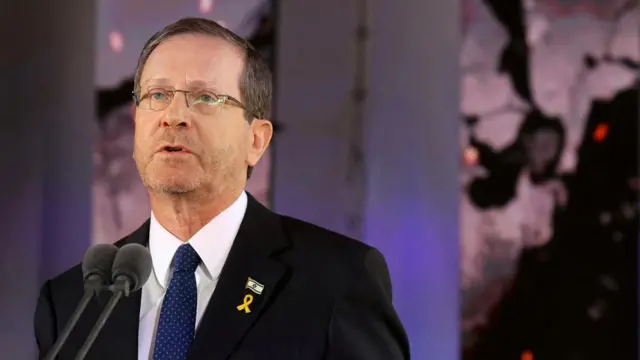 Image source, Reuters
Image source, ReutersIsrael's President Isaac Herzog has welcomed the security cabinet's decision to recommend approving a ceasefire and prisoner exchange deal.
The full government cabinet is expected to vote on the deal shortly, which if approved would go into effect on Sunday.
"This is a vital step toward fulfilling the highest covenant between the state and its citizens. There is no greater moral, human, Jewish, and Israeli duty. We must bring all of our hostages back home," Herzog says in a post on X.
"I harbor no illusions — the deal will bring with it great challenges and painful, agonizing moments that we will need to overcome and face together."
He adds that he embraced all families of the hostages, especially those who would not return in the first stage of the deal - which is expected to see 33 hostages released.
